SOPP585: Someone is bound to ask me to play the BWV565 Toccata, so I must learn to play it properly4/30/2020
Vidas: Hello and welcome to Secrets of Organ Playing Podcast!
Ausra: This is a show dedicated to helping you become a better organist. V: We’re your hosts Vidas Pinkevicius... A: ...and Ausra Motuzaite-Pinkeviciene. V: We have over 25 years of experience of playing the organ A: ...and we’ve been teaching thousands of organists online from 89 countries since 2011. V: So now let’s jump in and get started with the podcast for today. A: We hope you’ll enjoy it! V: Let’s start episode 585 of Secrets of Organ Playing Podcast. This question was sent by James. And he writes, Hi Vidas, James here from Rustington, England. Hope you are keeping well. Just getting ready for the first ever UK National Organ Day on April 18, when we'll be opening our church for the morning and hoping to welcome visitors- not least young ones- to explore the 'Hidden Mysteries of the Pipe Organ' with demonstrations, powerpoint presentations, to have a go themselves and play nursery rhyme tunes in a group on hand-held pipes if the coronavirus scare has passed. England desperately needs young organists! Someone is bound to ask me to play the BWV565 Toccata, so I must learn to play it properly. But my fingers refuse to obey in bars 12-15 however much I practice: they always want to play together rather than alternately. Can you give me some simple advice to train them? Best wishes and happy memories, James V: James was a guest recitalist a number of years ago at our church, and played wonderful recital of English music and also some organ favorites. And of course, he is talking about organ demonstrations on April 18, but we are recording this episode later, on May 1. So he was hoping that corona virus scare will pass, but we know from experience that it has not. A: It didn’t, yes. V: It only increased. A: And from what we heard on the news, that England isn’t going to cancel the quarantine right away. V: Yes. So hopefully this UK National Organ Day could be postponed for a later day. Talking about Bach’s Toccata and Fugue in D Minor bars 12-15, we have the score here in front of us, and we’re looking at it. It’s easy to discover the challenging points here. If you don’t have the score in front of you, we can sort of describe what’s happening. In measures 12-15, there is this passage which imitates violin - both hands play this single-voice passage - but it’s written like two voices. Right hand plays sixteenth notes up and down, and left hand plays sixteenth notes, but on repeated A. And it’s in syncopation with the first voice, a 32nd note later, not together. Sort of this pattern looks like, really violinistic. And therefore, many scientists believe that this work might be not written for the organ. A: Yes, because it doesn’t look like an organ piece, at least not this episode. V: And even, this might have been written not by Bach, right? A: Yes. I have heard rumours like that. V: Could be, Peter Williams, who passed recently, that was a great Bach scholar, and he wrote many books about organ and about Bach’s music, and in one of the volumes, he writes that the speculation is that either this piece was written for violin, or it could have been written by some organist from the region of Bach’s area - maybe Kellner, maybe even Böhm, or someone with similar skills. But, in the entire cycle, it’s a little bit different than North German compositions, right? A: Yes, it’s different, yes. V: It’s more emblematic for Middle Germany, Central Germany. And therefore, he concludes, Peter Williams concludes, that there wasn’t anyone with such a perfect pedal technique in that area. And therefore, in the Fugue, you have very lively subject, playable in the pedals as well, and he concludes that probably still, we have to believe it might be written by Bach. A: Well, maybe he was young at the time, and he wanted to show off his technique. V: Yeah. So Ausra, what do you think James could do to improve this passage? A: Basically, what I would do, I would really prolong each, the first note of the right hand, that makes an accent. That way, the left hand is just a complement here, and the right hand is much more important. V: You mean every 4th note? A: Yes, every 4th note. V: Mm hm. And practice slowly. A: Yes. And imagine if you would play this part on the piano, you would play the right hand louder, and the left hand softer. So I think even if you play the same registration on the same manual, you could have feeling that still your right hand is louder, and left hand softer. And then everything, I don’t know how James is fingering it, but I would alternate left hand between 2 and 3 - 2nd and 3rd finger. V: Mm. A: I wouldn’t play it with one finger all the time. V: I don’t remember exactly how I fingered this piece for our students, but since I didn’t suffer the challenge in this particular place, I might have not used alternating fingering in repeated notes. But it’s a good idea, if you want to do 2-3, 2-3, on the note A. But what I remember for myself, when I was practicing it, I had a problem here in measure 14, where the hands cross each other, right? From the beginning, they have interval of the 4th and up, because the melody goes up, and the left hand stays the same. But then, melody goes downwards, from the middle of measure 13. And when in measure 14, those hands meet, this is a trouble spot for a lot of people. A: But I think what you have to do, you have always to play your hands that your right hand will be above… V: Above… A: Above the left hand. Otherwise, you won’t be able to play it. V: So even probably at the beginning of this passage, place the left hand closer to the edge of the keys. A: That’s right. V: That’s it. This advice will help, definitely. A: And I have heard that some organists play this spot on different manuals as well. I wouldn’t do that myself, but if this is the case, that’s why it’s hard for you to play, you might try to do that as well. V: Mm hm. Good advice. Excellent. So guys, I hope you will practice like James probably will sometime in the future, this fugue and prelude. This is really worth doing. It’s probably the most famous Bach piece, and even organ piece, right? A: I think so, yes. Maybe just Widor’s Toccata might compete with it. But still I think Bach would win this competition. V: Depending in which country you are playing it. In France, probably Widor’s Toccata is very very famous. A: It is, but it’s not so much like this in America, let’s say. V: Yes. In our country, probably D Minor Toccata by Bach is more famous. A: Definitely. V: People don’t know Widor that much. I know some organists don’t like to play very popular organ music. They prefer to play less-known compositions, and that’s okay. But at some point, somebody might ask you, “Can you play D Minor Toccata?” You know, like a group of children during organ demonstration. Like James is describing his situation. What will you do then? A: Well, at least you can learn the first page of it. V: Yes. A: I think that might be enough. Just to demonstrate it. V: Yes. Lots of people don’t know the music beyond the first page. A: Sure. V: Or even beyond the first passage. A: That’s right. V: Good. This was Vidas. A: And Ausra. V: Please send us more of your questions. We love helping you grow. And remember, when you practice, A: Miracles happen. V: This podcast is supported by Total Organist - the most comprehensive organ training program online. A: It has hundreds of courses, coaching and practice materials for every area of organ playing, thousands of instructional videos and PDF's. You will NOT find more value anywhere else online... V: Total Organist helps you to master any piece, perfect your technique, develop your sight-reading skills, and improvise or compose your own music and much much more… A: Sign up and begin your training today at organduo.lt and click on Total Organist. And of course, you will get the 1st month free too. You can cancel anytime. V: If you like our organ music, you can also support us on Patreon and get free CD’s. A: Find out more at patreon.com/secretsoforganplaying
Comments
SOPP581: Thanks very much Vidas. This should also be interesting as a pedal exercise technique.4/29/2020
Vidas: Hello and welcome to Secrets of Organ Playing Podcast!
Ausra: This is a show dedicated to helping you become a better organist. V: We’re your hosts Vidas Pinkevicius... A: ...and Ausra Motuzaite-Pinkeviciene. V: We have over 25 years of experience of playing the organ A: ...and we’ve been teaching thousands of organists online from 89 countries since 2011. V: So now let’s jump in and get started with the podcast for today. A: We hope you’ll enjoy it! V: Hi guys, this is Vidas! A: And Ausra! V: Let’s start episode 581 of Secrets of Organ Playing Podcast. This question was sent by Amir, and he is taking our Secrets of Organ Playing course called “Sight-Reading Master Course,” and he writes: Amir: “Thanks very much Vidas. This should also be interesting as a pedal exercise technique Amir” And I wrote to him: Vidas: “You are right, Amir! Almost everything that can be played by the hand, can be played by the feet too. In fact, the feet often can be regarded as the third hand in organ playing.” V: I should give you a little bit of context about this question. Amir is studying this sight-reading course over maybe 17 or 18 weeks now, and sometimes he sends questions about it, and sometimes he struggles with things when he has to count rhythms. But this particular question, I wrote to him that he can actually transform any type of keyboard exercise into a pedal exercise, too. Do you think, Ausra that could be applied in organ playing, let’s say, in the Baroque period? A: Yes, I’d say it’s possible. V: Like if you take a Trio Sonata by Bach, and you play a manual part, but not with your hand, but with your feet. A: Well, it would be really hard. It’s possible, it would be really hard. V: Or a Two-Part Invention. You could play one part with your hand and another part with your feet, and then switch. A: Well, you could do all kind of tricks, because there is even one chorale from the Schubert collection where you can play the same voice with either the feet or with the left hand, so it’s up to you. V: I think sometimes it’s good to experiment with those techniques of placing any particular voice in pedals, let’s say. Because the organ is, back in the day, used to play chorale preludes or variations interchangeably. You used to place the chorale tune in the soprano, alto, tenor, or bass, and be able to play the bass not on the pedals, but let’s say with the left hand. This is simpler, right? But sometimes they do the opposite. Let’s say they play the tenor voice with their feet! A: Yes, you can use a 4’ stop, and it will work just fine, or you can do the same, to put a 16’ stop for your left hand, for example, and it will sound like you are playing it on the pedals. V: Have you tried it yourself? A: Yes, I have tried it. V: Was it difficult for you at first? A: Well, no, it was different! You have to get used to it. V: For me it was a challenge, because when you are not used to doing this kind of trick at first, you mix up your left hand with your pedals, and your left hand wants to read the lowest staff! A: True, and another problem that you might encounter if you are playing the cantus firmus with your feet, it often has the trills at the end of the phrase, so you have to trill your feet, so it’s not very comfortable, but it’s possible. V: Like in one of the Schubert’s chorales, the last one. You have trills in the cantus firmus, which is played with the feet. A: Yes, but you could also do another arrangement. You could play that left hand with your feet, and you could play the chorale melody with your… V: ...left hand. A: ...left hand. I have seen two versions of this chorale, and actually I think I have played them both. V: Which one do you prefer? A: Well, probably I would do that fast part with the feet. It’s easier for me. It seems, maybe, very scary because you have so many notes in the pedal part, but that way you don’t have to trill with your feet. So basically, if you do this version, it’s more like “Wachet auf.” from the Schubler collection. V: And “Wachet auf” also can have two versions! A: Sure. Definitely. Because they are sort of similar in texture. V: And this is BWV 645, and in one version, you have a cantus firmus chorale melody in the tenor, played by the left hand, and the bass line with the feet. But in another version, you switch parts, you flip parts, basically, playing the bass part with your left hand, and the tenor line with your feet, with a Trumpet registration, maybe. A: Yes, so that’s just another possibility. So try and explore it, and see if you like it. V: Again, it’s a challenge sometimes at the beginning, because you’re not used to this kind of disposition, but it only takes a few of the chorales to be played this way where you free your mind from previous preconceptions, and then simply sight-read or practice any other way you want. Right? A: Sure. V: That’s a good brain exercise. A: It is! It is! V: Like solving a musical Sudoku. Do you like Sudoku? A: Yes! I used to do quite a lot of them. Not now, I don’t have so much time. V: And what has taken up most of your time today? A: Well, basically recording organ and grading my students’ assignments! “Distance education,” so called. V: Do you prefer playing organ and recording to grading papers? A: Well, playing organ is fun. Recording is not so much fun, because sometimes it gets frustrating and stressful. V: But you know what I like about playing organ and recording is that when I record, it’s like the finished product, finished result, and you can be a little bit satisfied, be a little bit proud of what you did today. Basically, you achieved something. When you practice, you don’t know if your level is suitable for recording. But when you sit down and force yourself to play the piece without mistakes during a certain number of takes… I know it’s difficult and time consuming and sometimes stressful when you make a mistake in the penultimate measure and have to start all over again, but it’s fun when you have the results. A: Sure. You know, it’s good exercise for your concentration, too, so it’s worth doing it—at least trying to do it. V: So guys, lots of different ideas to think about. Not only about playing with your feet, what can be played with your hands and vice versa, but also about practicing and recording your own organ music, and sometimes even sharing with the world! That’s another skill set that we can talk about later. Thanks guys, for listening, for sending your wonderful questions. We love helping you grow! And remember, when you practice, A: Miracles happen. V: This podcast is supported by Total Organist - the most comprehensive organ training program online. A: It has hundreds of courses, coaching and practice materials for every area of organ playing, thousands of instructional videos and PDF's. You will NOT find more value anywhere else online... V: Total Organist helps you to master any piece, perfect your technique, develop your sight-reading skills, and improvise or compose your own music and much much more… A: Sign up and begin your training today at organduo.lt and click on Total Organist. And of course, you will get the 1st month free too. You can cancel anytime. V: If you like our organ music, you can also support us on Patreon and get free CD’s. A: Find out more at patreon.com/secretsoforganplaying Would you like to master Memento nostri, Domine, Op. 69 that I composed back in 2019? I've created this practice score with complete fingering and pedaling so that our students could master this piece efficiently, saving many hours of frustration. It's dedicated to James Spanner. Thanks to Jeremy Owens for his meticulous transcription from slow motion video. Basic level. PDF score. 5 pages. This score is free for Total Organist students. Check it out here Thank you everyone for participating! You all made us very happy with your entries. We have all selected the following winners. You can congratulate them here and find the rules for Week 70.
Welcome to Secrets of Organ Playing Podcast #583!
Today's guest is Crista MILLER who is the Director of Music and Cathedral Organist at Houston’s Co-Cathedral of the Sacred Heart where she chaired the Organ Committee for Martin Pasi’s Opus 19 pipe organ. She oversees the Celebrity Organ Series and the First Friday University of Houston Series and leads a growing Cathedral music organization, with the Schola Cantorum in high demand for large-scale, festive liturgies, including those prepared for the National Catholic Education Association, the National Winter Conference of the University of St. Thomas’ St. Basil’s School of Gregorian Chant, Church Music Association of America, various Archdiocesan offices, and for Archbishop Joseph A. Fiorenza’s ceremonial receipt of the Pallium from Pope Benedict XVI in Rome in 2005. She was already a guest on the podcast 3 years ago when we talked about the new music for the organ. Recently she left a thoughtful comment about our past podcast conversation so I asked how she is doing under the quarantine. Our chat seemed to me like a perfect topic for the podcast conversation so I invited her to be a guest again and she graciously agreed. So in this conversation we talk about organist's life during the quarantine - challenges and opportunities. Enjoy and let us know how you approach those challenges and opportunities yourself in the comments bellow. Listen to the conversation Relevant links: http://www.eastwestorganists.com/crista-miller-dma.html https://soundcloud.com/cordenuit8 https://soundcloud.com/user-545548420 https://www.youtube.com/channel/UC4N4fjBNP595MgpsgIiqWQw http://www.cocathedralmusic.org/
Vidas: Hello and welcome to Secrets of Organ Playing Podcast!
Ausra: This is a show dedicated to helping you become a better organist. Vidas: We’re your hosts Vidas Pinkevicius... Ausra: ...and Ausra Motuzaite-Pinkeviciene. Vidas: We have over 25 years of experience of playing the organ Ausra: ...and we’ve been teaching thousands of organists online from 89 countries since 2011. Vidas: So now let’s jump in and get started with the podcast for today. Ausra: We hope you’ll enjoy it! Vidas: Hi guys! This is Vidas. Ausra: And Ausra. V: Let’s start episode 582 of Secrets of Organ Playing Podcast. This question was sent by Pieter. And he writes, Dear Vidas and Ausra, A friend has sent me a link to your website and I think that it is something that is very interesting for me. Before I look into it further I would be grateful for your guidance as to how I might proceed. I will tell you a little about my situation. I am an organ student living in the Netherlands although I have had a fantastic organ teacher in London where I lived for many years. I have an organ at home and practise every day. I do not have regular organ lessons at the moment as I am still very loyal to my teacher in London and prefer to go to her when I am there. Although I played the organ many years ago I did stop but about 3 years ago I restarted lessons. I am highly motivated and I am in the fortunate position that I have a lot of time to practise as I am now retired (I am 63). I have recently taken the Colleague diploma of the Royal College of Organists and I achieved success in the Pieces as well as the Harmony, Counterpoint, Theory and Aural sections. I was not successful with the tests at the organ although I did get a pass mark for transposition of a hymn tune. I think sight reading is my weakest area. As this diploma is modular I can repeat just the section that I didn't pass and if I am successful the next time then I will get the full award. Of course I do understand that playing the organ is so much more than passing exams and I guess my goal is to be a better musician. I suppose I am looking for guidance as to how to approach these challenges and whether your material might help me in that respect. I am sure nothing can substitute for regular lessons and somehow I need to sort that out but your thoughts on that would be much appreciated. Many thanks in advance for taking the time to read this email. Kind regards, Pieter V: Let’s congratulate Pieter that at the age of 63, he still continues to practice and still continues to improve himself, right? A: Yes, it’s very good. I think that’s how people need to live their life. V: Life long education, right? A: That’s right. V: Life long improvement. A: I always admire people who have goal in life and not stopping doing things. Not only just watching TV all day long. V: He mentions passing exams and tests. I don’t think they are necessarily a bad thing, right? Even if you think that organ playing is so much more than tests and exams. But tests and exams can give you a goal. A: Sure. They can push you forward a little bit harder. V: They can give you deadline. A: That’s right. So they can increase your motivation. V: True. A: So I think that’s a good thing, to have your goals set ahead of you, of your time. So I think it’s very beneficial. V: Mm hm. A: And I thought while reading Pieter’s letter that our sight reading course might be beneficial for him. V: Definitely, definitely. A: To improve his skills. V: Yeah. A lot of people have very positive comments about this course. It doesn’t start very easy, like in the beginning level, you have to be able to sight read or practice, let’s say, a little bit syncopations, and eighth note movements, jumps, and polyphonic movement. Although the exercises start as just one single voice. But it’s not as easy as sight reading a hymn, separate lines of a hymn. The rhythms are more varied. But if he can, if he passed harmony, counterpoint, theory, and aural sections, I have no doubt that he has preliminary skills to take this course. And even though the course lasts for 40 weeks, we have supplemental material. People don’t have to necessarily stick to this schedule and do the course in 40 weeks. They can adjust the schedule and… A: Sure. Or we can rush if we have time. For example, now when quarantine is all over Europe and most places of the world. V: That’s right. If you find the course too easy at the beginning, you can sight read faster. And actually, he can let us know in advance, I can send you advance material. If you, for example, complete Week 2, Week 1, 2, 3, 4 material in two weeks let’s say, or one week, and you want maybe week 8 material right away, I can do that. I can grab the file and send it to you in advance. Just let us know. So, as Ausra thinks, and I agree, Pieter should look into our organ sight reading master course. This is a solid course, lasts 40 weeks, and will keep him occupied for quite some time, and is based on Bach’s Art of Fugue, with supplemental material at the end of playing Romantic organ music, based on Reger’s Chorale Preludes, legato style. Okay, guys, let’s ask Ausra if she has anything else to add. A: Probably not. V: Mm hm. So this was quite a specific question: How Pieter can improve his sight reading, basically, and we have very specific answer. Thank you guys for sending us those questions. We love helping you grow. And remember, when you practice, A: Miracles happen. Vidas: This podcast is supported by Total Organist - the most comprehensive organ training program online. Ausra: It has hundreds of courses, coaching and practice materials for every area of organ playing, thousands of instructional videos and PDF's. You will NOT find more value anywhere else online... Vidas: Total Organist helps you to master any piece, perfect your technique, develop your sight-reading skills, and improvise or compose your own music and much much more… Ausra: Sign up and begin your training today at organduo.lt and click on Total Organist. And of course, you will get the 1st month free too. You can cancel anytime. Vidas: If you like our organ music, you can also support us on Patreon and get free CD’s. Ausra: Find out more at patreon.com/secretsoforganplaying It took me 2 full practice sessions on 2 consecutive days to be able to record this sweet chorale prelude. Recording sessions were very frustrating as I kept making mistakes in unusual places. But luckily today was successful day. This chorale prelude is is a typical ornamented choral with pre-imitation technique where accompanying lower voices play in dialogues with each other before the chorale tune enters in soprano. Let me know if you had enjoyed this Vox Humana with the tremulant in the right hand part! In this chorale prelude Kauffmann calls for Principal 8', Octav 4' and Sesquialtera in the manual part and Posaune 16' and Violon in the pedals. The pedals take up the chorale tune while the hands move in a brisk and charming imitation with each other based on the fragments of the chorale. It wasn't easy recording this beautiful piece - kept hitting the wrong keys from time to time but eventually everything fall into place. This chorale prelude has two verses - in the first, pedals have the choral tune played with the Posaune 16' stop and the hand part plays in imitation on Principal 8' and Octav 4'. In the second much gentler verse, I play the choral on Octav 4' and Cornet 2' in the pedals and the hands on Gedackt 8' and 4'. The more I play Kauffmann's music, the more I love the colours, especially when the tempo is moderate like here. A few days ago Ausra, our friend James Flores and I all recorded our parts of the slow movement of Bach's Trio Sonata No. 1, BWV 525. We sent our videos to James and he synched all our playing to make this fascinating video. Hope you will enjoy it!
Vidas: Hi guys, this is Vidas!
Ausra: And Ausra! V: Let’s start episode 580 of Secrets of Organ Playing Podcast. This question was sent by Maureen, and she asks: “Dear Vidas, Please could you suggest suitable music for this particular week in the Catholic Church? I love the harmonies for ‘O Sacred head sore wounded’. Is there an organ rendition for this one? Your suggestions would be appreciated as always. Thank you, Maureen.” V: I think, Ausra, she refers to “O Sacred Head, Now Wounded.” Right? A: Yes, I guess. This is a famous chorale. V: Passion Chorale. A: Yes. V: For the Passion Week, or Passion Sunday, or for the week before Easter, probably. And actually, I took the initiative and created a Chorale Prelude based on this hymn, “O Sacred Head, Now Wounded,” and it became my composition, too. Let me check which opus number. I think it's Op. 71. So anyway, I hope Maureen will find it useful, and other people. But of course, it’s not about me, there are other composers that created similar Chorale Preludes based on this tune, right? A: For example, what? Could you suggest any? V: Dieterich Buxtehude, definitely. Johann Sebastian Bach. These two are very famous settings. And, obviously any Baroque composer from Germany has created their own rendition of this Chorale tune. A: Well, because I guess this is a Lutheran Chorale, so all the Lutheran composers have composed compositions based on this hymn tune. Although actually, I have heard this hymn with other words, not the Passion words, because this Chorale melody is very famous. V: It’s of course used many times in “St. Matthew’s Passion!” A: Yes, I think it goes throughout the piece. V: By Bach. A: It’s repeated many times, of course with a different text. V: Nice. So obviously, if Maureen takes the collection which is called “371 Chorales by Bach,” this collection was collected or gathered after his death by his students, and published from Chorale harmonizations of his four-part Chorales for famous Cantatas, and also, of course, Passion. So, I remember seeing this particular Chorale setting many times appearing in this collection, so you could get many different harmonizations and well as different keys! A: That’s a nice suggestion, I guess. V: Yeah, you could play different settings soloing out the melody with your right hand, playing all parts on one manual, and maybe even the soprano line one octave lower as a tenor line, but then the tenor line playing one octave higher, exchanging soprano and tenor, basically, and then this would be a perfect way to add the variety of your setting, and the congregation would love it, probably, because it’s very unusual. You could add your own harmonizations if you know how to do it, but you first have to learn how to harmonize. Right Ausra? A: Yes, true. V: So lots of ideas! Pick and choose a few and practice, and send us more of your questions, we love helping you grow. And remember, when you practice, A: Miracles happen! Recently quite a few people were starting to ask questions about our new Hauptwerk setup so I just wrote a long post about it. You can read it here.
|
DON'T MISS A THING! FREE UPDATES BY EMAIL.Thank you!You have successfully joined our subscriber list.  Photo by Edgaras Kurauskas Photo by Edgaras Kurauskas
Authors
Drs. Vidas Pinkevicius and Ausra Motuzaite-Pinkeviciene Organists of Vilnius University , creators of Secrets of Organ Playing. Our Hauptwerk Setup:
Categories
All
Archives
July 2024
|
This site participates in the Amazon, Thomann and other affiliate programs, the proceeds of which keep it free for anyone to read.
Copyright © 2011-2024 by Vidas Pinkevicius and Ausra Motuzaite-Pinkeviciene.
Terms of Service and Privacy Policy
Copyright © 2011-2024 by Vidas Pinkevicius and Ausra Motuzaite-Pinkeviciene.
Terms of Service and Privacy Policy

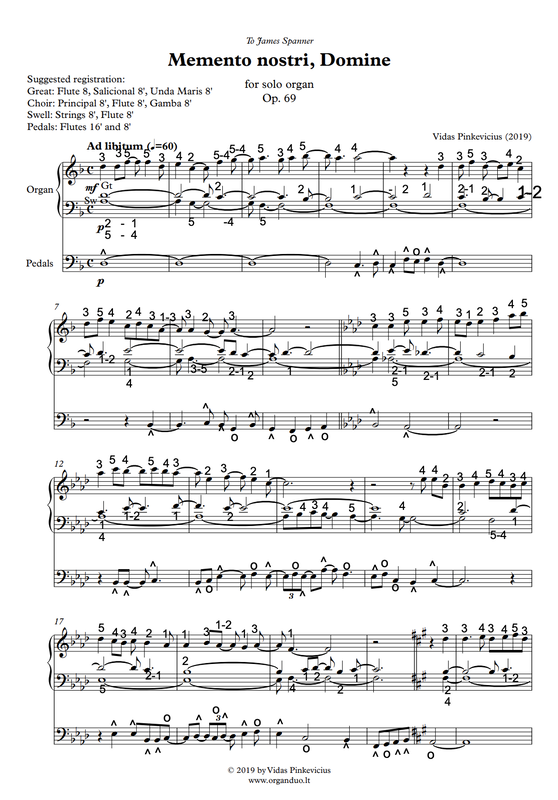
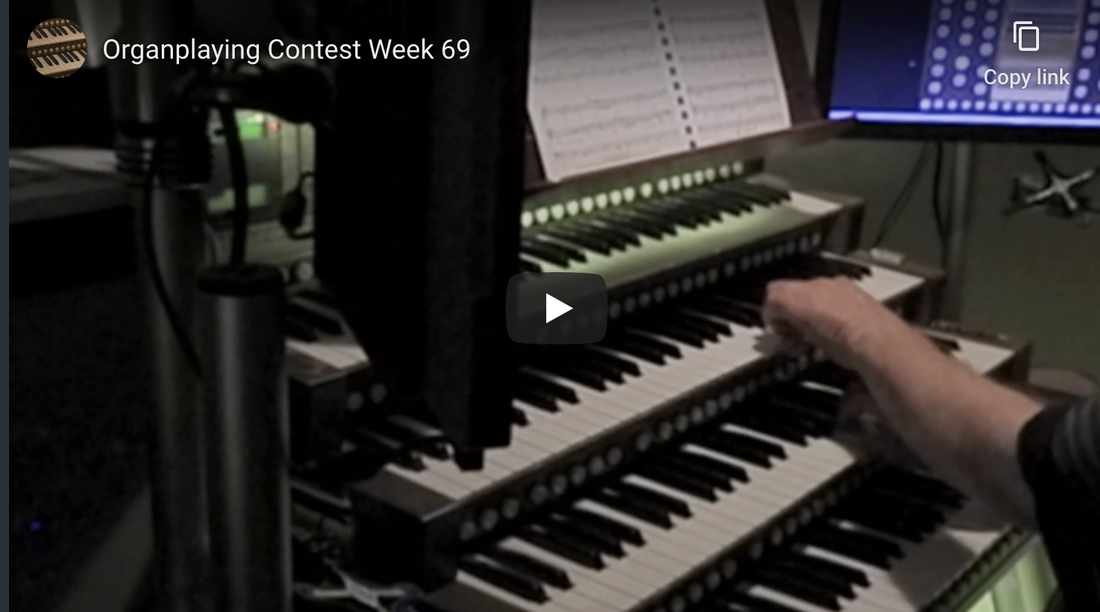
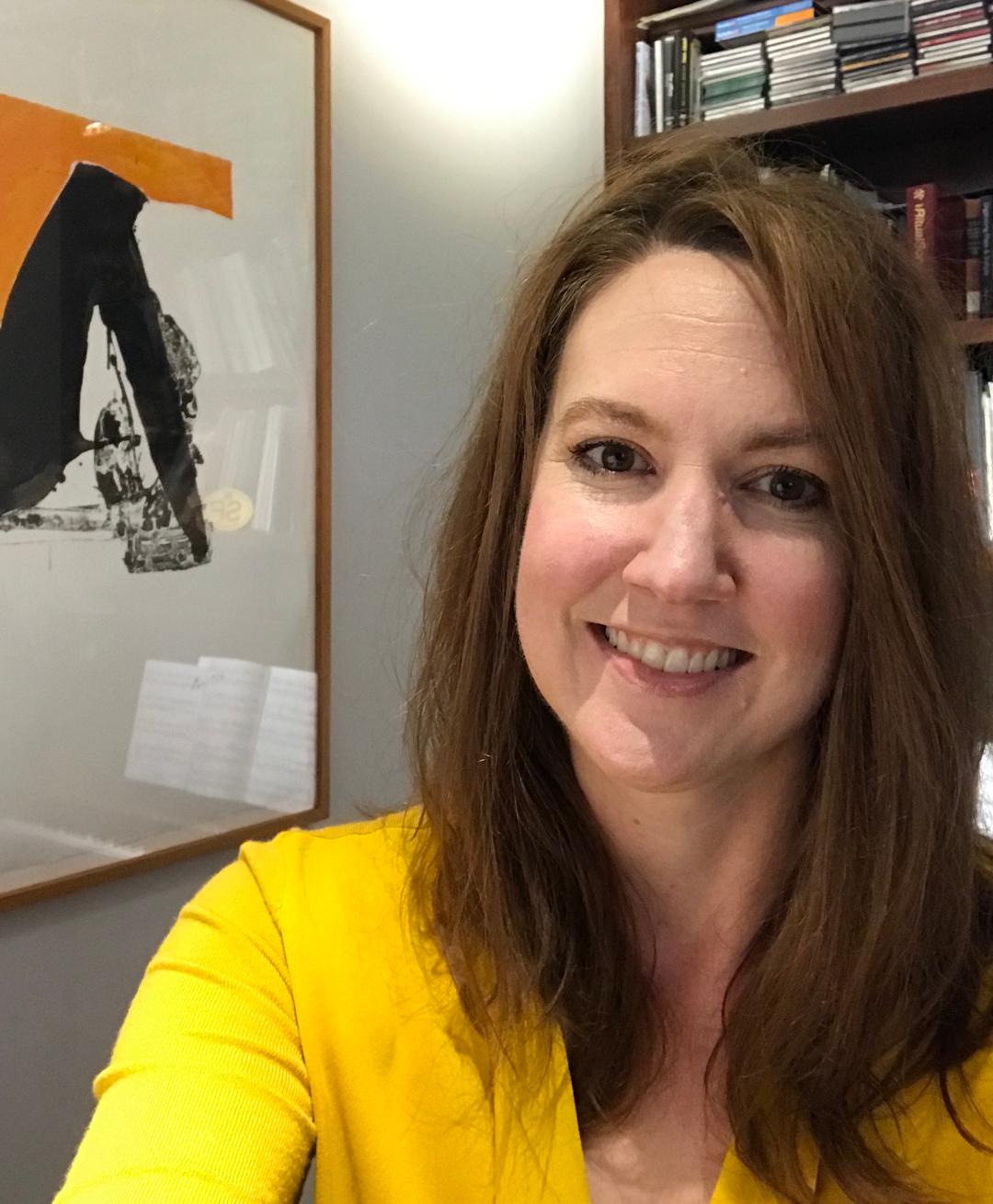
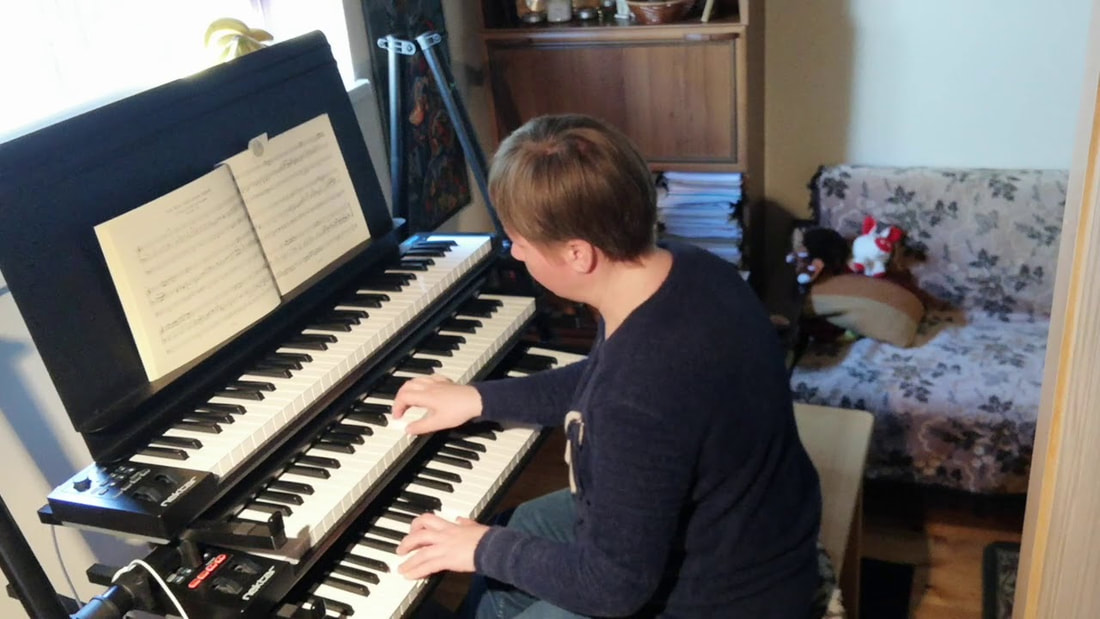
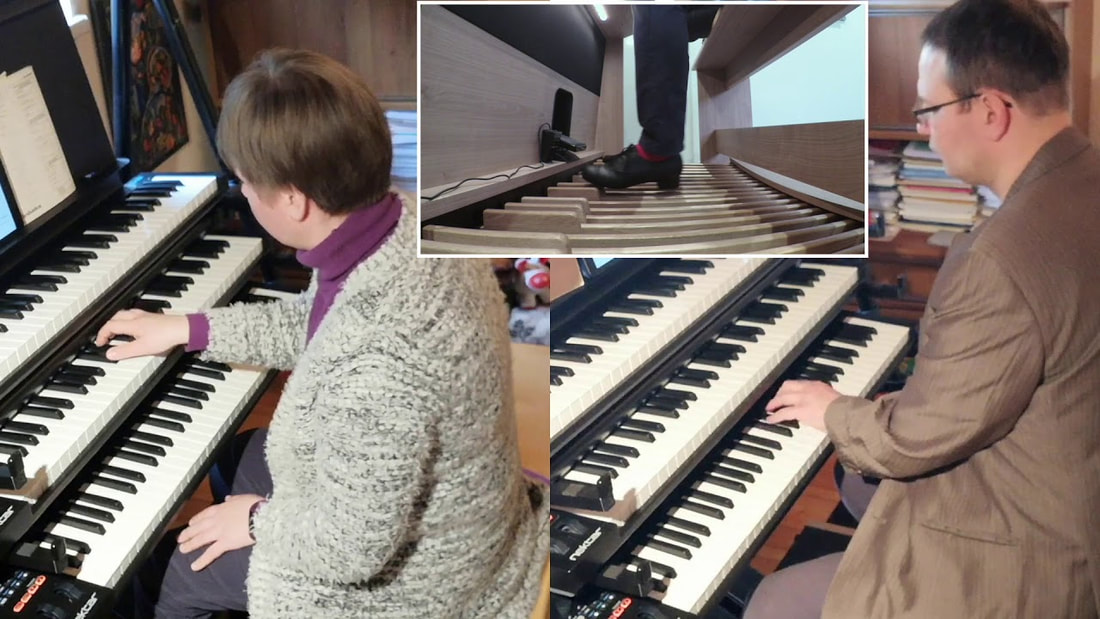
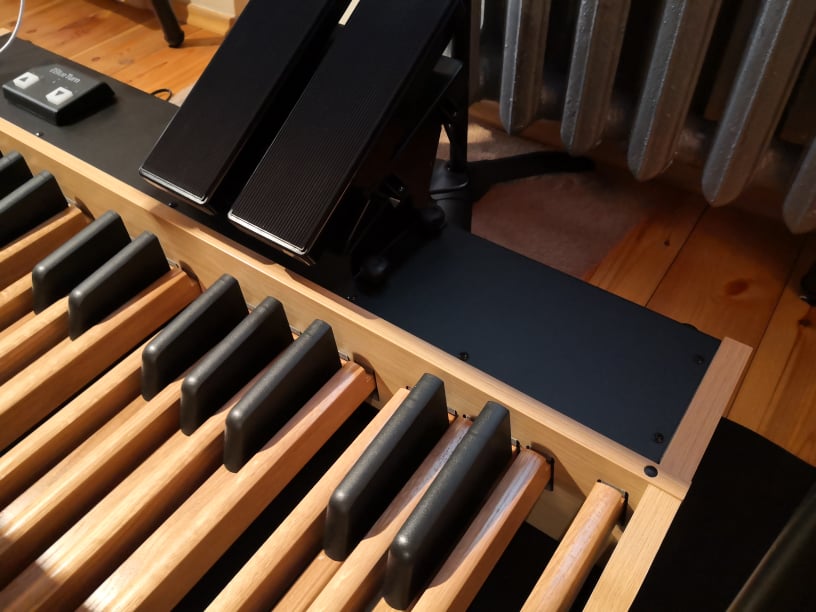



 RSS Feed
RSS Feed